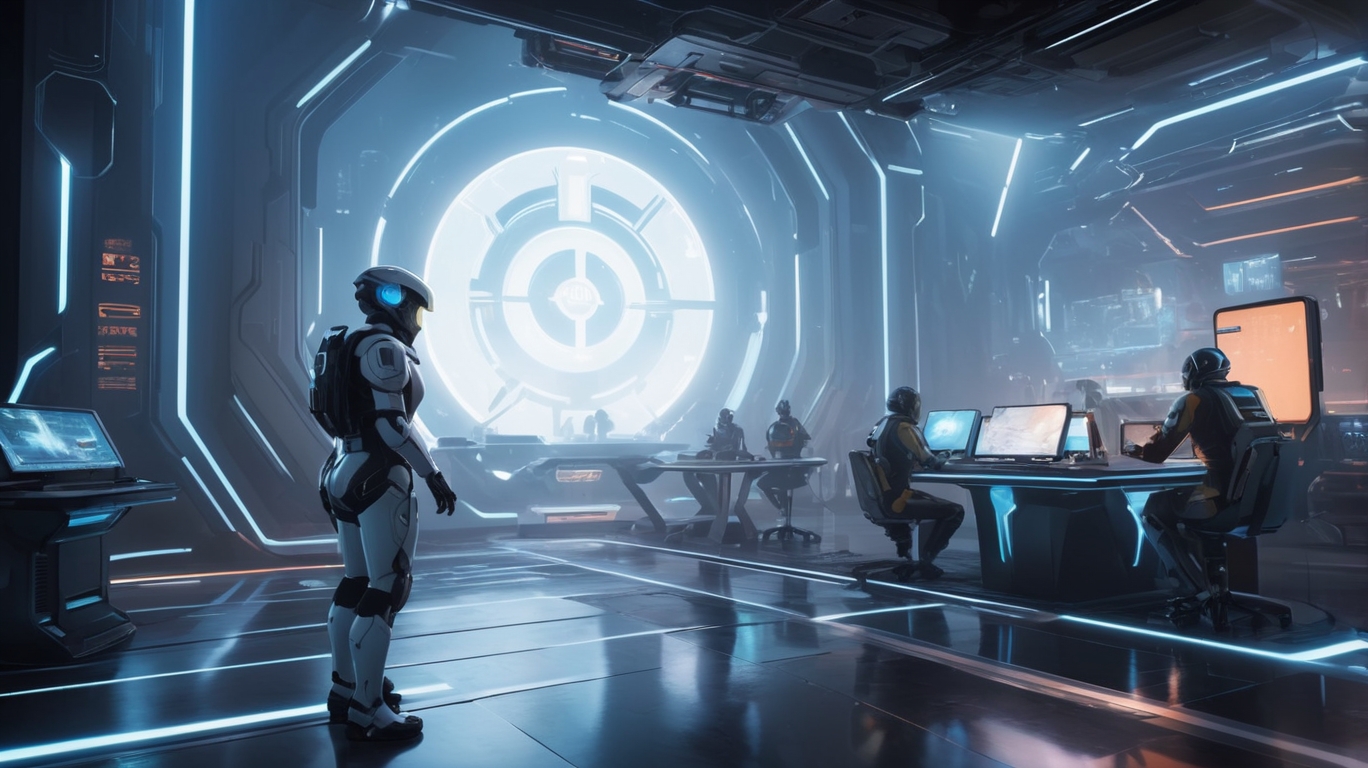
The unsung heroes behind the dynamic experiences, intricate foes, and immersive landscapes found in video games are artificial intelligence (AI) agents. This article will be of interest to gamers who are curious about how their favorite NPCs “think,” as well as to developers exploring the potential of AI-driven mechanisms. Understanding AI agents is key to understanding the future of interactive entertainment.
What are AI agents in games?
At their core, AI agents are systems designed to perceive their environment and take actions to achieve specific goals. In video games, these agents can be adversaries in shooters, amiable villagers in farming simulators, or rivals in matches. Their “intelligence” comes not from consciousness, but from programmed decision-making processes that allow them to react, adapt, and even learn.
Think of an AI agent as a virtual brain. It collects input data, such as player position or game time. After that, it uses machine learning, scripts, or logic to process it. As a result, it outputs behavior, such as fleeing, attacking, or suggesting a quest.
Where AI Agents Appear in Games
1. Non-Player Characters (NPCs)
NPCs are the most popular usage of AI agents, and they can be anything from attackers in stealth games to shopkeepers in role-playing games. Well-designed AI makes them feel alive. They patrol, communicate, respond to your choices, and even form alliances or rivalries.
2. Enemies and Combatants
In combat-oriented games, AI agents must find a balance between challenge and fairness. They can dodge attacks, flank players, or retreat if wounded. All this is done using decision trees, behavior trees, or finite state machines (FSMs).
3. Procedural Systems
Games like Minecraft or No Man’s Sky use AI to shape environments, ecosystems, and resource behavior. Agents here don’t just act—they shape the world.
4. Player Companions
Ellie in The Last of Us and Dogmeat in Fallout 4 are examples of AI-driven allies that should comprehend the player’s choices, react appropriately, and offer significant assistance without being a burden.
5. Simulation and Management Games
In games like The Sims or Cities: Skylines, entire groups of agents simulate realistic behavior. They wake up, go to work, get stuck in traffic—all thanks to AI.
How AI Agents Are Built: Tools and Techniques
For beginners:
Most basic AI systems use finite state machines (FSMs), where the agent switches between states such as “patrol”, “pursuit”, or “escape” depending on the game conditions. They are perfect for small to medium-sized projects and are simple to apply.
For Developers:
More advanced systems often rely on:
- Behavior Trees – Modular and scalable, ideal for complex decision-making.
- Utility Systems – Evaluations of several possibilities based on scores (e.g., decide whether to attack or heal depending on need).
- Pathfinding Algorithms – Like A*, which help agents navigate space efficiently.
- Machine Learning – Neural networks are used in certain contemporary games to enable agents to pick up player behaviors or develop strategies.
The Power of AI Agents: Making Games Feel Alive
AI agents are more than mechanics — they’re about immersion. A game where NPCs react differently depending on your reputation, or where enemies learn from your tactics, creates a feeling that the world lives and breathes even when you’re not looking.
Games like Middle-earth: Shadow of Mordor’s Nemesis system took this to a new level. Enemies remembered previous encounters, held grudges, and even rose through ranks — all handled by AI agents working in tandem.
The Future: Smarter, More Adaptive Worlds
As computing power increases and machine learning becomes more accessible, the future of AI in games looks very bright.
- Dynamic storytelling: agents that create new narratives.
- Real-time learning: enemies that adapt to the player’s style mid-game.
- Personalized experiences: universes that change according to the decisions and playstyle of each player.
Final thoughts
The size or genre of the game doesn’t matter because AI agents can access tremendous capabilities to create deeper, smarter, and more immersive gameplay. For players, this means more believable worlds. For developers, this means more flexibility and creativity.
At Melior Games, we’re committed to integrating cutting-edge AI into our games — not just to simulate intelligence, but to create great experiences. Keep checking back as we keep expanding the possibilities of AI in games.
Do you want to integrate intelligent AI systems into your game project?
Let’s talk: meliorgames.com




